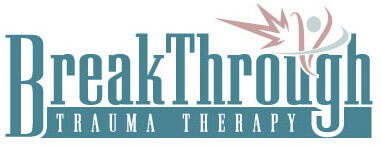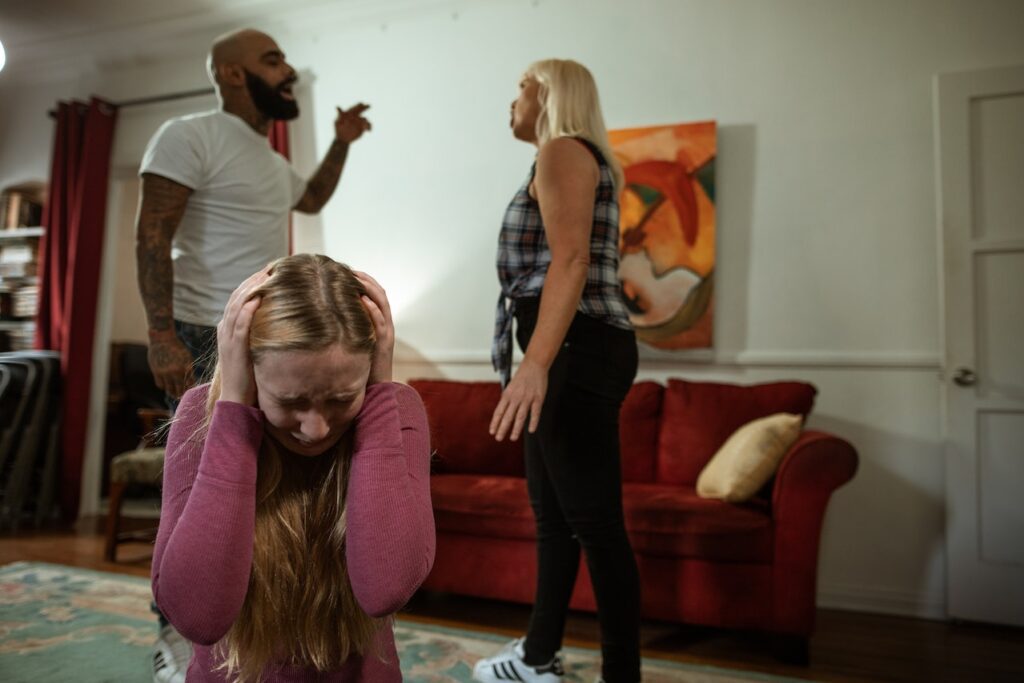Psychological trauma is a multifaceted condition that affects  many life areas, including relationships. Research shows that childhood and adult traumatic experiences influence your thoughts, perspective, beliefs, expectations, feelings, and behavior, which, in turn, affects your propensity toward
many life areas, including relationships. Research shows that childhood and adult traumatic experiences influence your thoughts, perspective, beliefs, expectations, feelings, and behavior, which, in turn, affects your propensity toward
- Trusting and socializing with people
- Developing and sustaining healthy bonds and boundaries
- Cultivating healthy communication habits
Hallmarks of A Functioning Relationship
There are many facets to a functioning relationship. Trauma destabilizes each one by creating a psychological, emotional, and behavioral storm. For instance, your satisfaction and distress level in a relationship is subjective. It depends on your beliefs, perceptions, expectations, and emotions. Thus, a couple can have different opinions on their level of contentment in their relationship.
Similarly, your communication behaviors stem from lived experience, which affects how you express yourself in a relationship. Trauma conditions you to expect the worst-case scenario when confronting or tackling sensitive issues in a relationship. It can lead to internalization, avoidance, or unhealthy emotional outbursts.
Another essential mark of a budding relationship is the degree of perceived collaboration. Shared interests nurture bonding, support, and accountability in a relationship. On the other hand, trauma fosters dissociation, distrust, and negative involvement behaviors.
Mutual respect is also an essential aspect of a functioning relationship. It is a by-product of healthy boundaries, value in your loved one’s opinion, and acceptance of their differences. Trauma heightens insecurities, doubt, judgment, and abuse in relationships.
Having a life beyond your relationship is equally crucial for a healthy relationship. Unrealistic expectations and overreliance on your partner leave you vulnerable to abuse.
Psychological trauma is an emotional response to a distressful event(s). There are varying traumatic stress reactions which present differently in people. Trauma counseling explores your response to past or ongoing trauma, including its impact on your interaction with friends, family, colleagues, or the community. Here are common traumatic responses in relationships.
Trust Issues
A traumatic event(s) can make you increasingly weary of people’s motives and actions. Trauma causes hypervigilance – a heightened state of alertness toward threats. It can manifest as
- Actively look for signs of cheating in a spouse, abusive behavior, or mistreatment.
- Hiding money out of fear that your partner will steal it because of an adverse childhood experience where your drug-addicted parent stole and sold your possessions
- Refusing to commit to relationships because of a previous divorce or break up
- Judging everyone because of the shortcomings of one person
- Acting out in a relationship whenever someone threatens your sense of security because of adverse childhood experiences
- Pushing people away because you are still sensitive from your past hurt
- Ending relationships as soon as you develop deep bonds
- Investing in flings because potential long-term relationships feel suffocating
 The negative mindset stems solely from your experience, not from signs of existing harm. The unhealed trauma keeps you guarded, making it impossible to form deep, meaningful connections with people. Everything about committing to a relationship becomes a trigger warning to you.
The negative mindset stems solely from your experience, not from signs of existing harm. The unhealed trauma keeps you guarded, making it impossible to form deep, meaningful connections with people. Everything about committing to a relationship becomes a trigger warning to you.
It is a fact that every human being has the potential to harm you physically, emotionally, and psychologically. However, it is not healthy to actively expect abuse to the point of it harming your relationships because of distrust, especially when there is no cause for alarm.
The Benefits of a Trauma Therapist in Cultivating Trust in Relationships
A traumatic distortion requires professional intervention from a certified trauma counselor. Post-traumatic stress disorder (PTSD) from childhood or adult trauma can diminish your trust in people. In PTSD therapy, your counselor guides you to
- Identify your trauma source and triggers.
- Understand the impact of the trauma on your trust issues
- Face and confront your past in a safe environment
- Learn techniques, skills, and behaviors to manage PTSD symptoms.
- Explore new ways of cultivating trust in your relationship.
There is also trauma treatment specific for adverse childhood traumatic experiences. Your trauma therapist uses techniques that help you heal your inner child, make peace with the past, unlearn destructive behavior, and adapt to new ways of thinking, reacting, and approaching the issue.
Emotional Dysregulation
Trauma diminishes activity in the prefrontal cortex – the part of your brain responsible for emotional regulation and thought rationalization. Humans have the ability to control their emotional reactions by increasing, decreasing, and maintaining positive and negative emotions consciously and subconsciously. However, traumatic experiences reduce your ability to manage and process emotional surges, making distressful relating to past or ongoing trauma intolerable.
You go through intense sadness, despair, anger, and helplessness every time you encounter situations similar to your traumatic experiences. Someone with PTSD experiences these extreme emotional surges whenever they face triggers or trauma reminders in a relationship.
Emotional Regulation in PTSD Treatment
Your irrational fears, anger outbursts, severe hurt ache, uncontrollable jealousy, and persistent hopelessness and anxiety did not crop up unprovoked. You have unresolved trauma requiring PTSD therapy. A PTSD counselor has the resources, experience, and expertise to
- Help you piece together your traumatic event
- Understand its implications for your mental health.
- Teach you techniques and skills to regulate your emotions, thoughts, and accompanying behavior.
- Engaging in compulsive behaviors.
Childhood trauma counseling is also available to deal with adverse childhood traumatic experiences influencing your relationships. The events increase your vulnerability to developing insecure attachments with loved ones because you actively expect disappointment, have low self-worth, or have dependency issues. Childhood trauma also makes you susceptible to mood disorders like depression and anxiety, making relationships a burden because of persistent negative moods, emotions, and thoughts.
Emotional Detachment
Trauma also limits your ability to engage fully with your emotions or other people’s feelings. Emotional detachment stems from a diminished emotional processing capacity. It is also an unhealthy coping behavior to keep you from experiencing the misery of the trauma. You seem distant, disinterested, cold, and emotionless in a relationship. Symptoms of emotional detachment include
- Inability to enjoy the hobbies or activities you once liked
- Showing less effort in your relationships
- Having little to no empathy for others
- Avoiding vulnerability out of fear of being hurt
- Unwillingness to engage with people at an emotional level
Trauma Treatment for Emotional Detachment
A trauma counselor can help you develop a healthy emotional attachment with your loved ones. Counseling also raises your awareness of the impact of trauma on the way you process emotions and show empathy. The trauma therapist teaches you techniques to enable you to rationalize your thought and emotions, deal with suppressed thoughts and feelings, employ vulnerability, and modify your behavior.
Fear of Intimacy
The survival mode after a traumatic experience can make you afraid of commitment. Fear is an irrational defensive mechanism to keep you from pain. Nervousness and dread increase because of excessive cortisol secreted in response to trauma. Cortisol favors withdrawal and inhibits oxytocin, a hormone that fosters bonding.
Furthermore, the thought of nursing a broken hurt again, the heartache of growing up with an uncommitted parent, or relieving a rape ordeal or sexual abuse can keep people from pursuing intimacy in relationships. Intimacy requires vulnerability and openness. However, this is a daunting requirement for a hypervigilant, emotionally bruised, and broken individual. The alternative to this traumatic requirement is often shallow and meaningless relationships devoid of emotional attachment.
Trauma Therapy Can Help You Embrace Intimacy
A trauma therapist can teach you techniques that favor the release of oxytocin to help you relax and desire a connection with your loved ones. You will also learn how to acknowledge, access, and process repressed emotions because of the trauma. Trauma counseling lets you learn from your trauma, strengthening your resilience and resolve to heal.
Diminished Self-Worth
Devaluing your worth is another destructive trauma side-effect. For instance, abuse survivors self-blame to cope with the ordeal. They feel responsible for their loved one’s cruelty and mistreatment. Trauma can push them to sympathize with the abuser by developing a trauma bond known as Stockholm syndrome.

Trauma can make you believe you are unworthy of love, friendships, or happiness. Hypervigilance fuels this outlook by making you a slave to yo
ur worst fears. You keep poking holes, expecting bad things to happen. The negative perspective pushes you to self-destructive mode anytime your insecurities get the best of you, causing you to ruin any good thing in your relationship.
Trauma Therapy and Cultivating Your Self-Worth
Trauma counselors use cognitive and behavioral techniques to guide you to grow your virtues, mental resilience, and positive self-perception. Trauma therapy also exposes the distortions in your thought pattern and the irrational emotions and destructive behavior that follow each cycle.
The impact of a traumatic experience is too complex to counter its effects alone. Trauma treatment is a comprehensive approach that increases your understanding of the condition, creates awareness of its influence on your mental health, and provides life-long solutions that promote mental wellness.
Seek Trauma Counseling Today
You do not have to forebear the distress of past or ongoing trauma. It is possible to undo the damage through trauma therapy. A PTSD counselor can help you offload the weight of past trauma and its lingering effect on PTSD treatment. You can learn to let go of the painful memories, fears, and pent-up emotions that occurred in your early years in childhood trauma therapy.
You can develop healthy relationships and bonds, thrive in social spaces, and enjoy life without fear of harm. You are worthy of love. You can find love and delight in its goodness. However, you have to heal from trauma. Begin your healing journey with trauma therapy and find the freedom to cultivate budding relationships.
Contact Us
